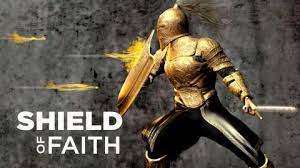
The Word Relationship
Pr. Mathew V. S.
Jesus said to His mother, Dear woman, here is your son, and to the disciple, here is your mother (Jn19:26-27)
The sayings of Jesus on the cross are also called the seven last words from the cross. Of the seven, three are found only in Luke and three appear exclusively in the Gospel of John. The other sayings appear both in the Gospels of Mark and Matthew.
Since the16th century these sayings have been widely used in Good Friday sermons. The traditional order of the seven sayings is:
1. Father forgive them, for they know not what they do (Lk 23:24)
2. Truly I say to you today you will be with me in paradise (Lk 23:43),
3. Woman, behold your son, behold your mother (Jn 19:26-27).
4. My God, My God, Why have you forsaken me? ( Mtt 27: 46, Mk 15:34).
5. I thirst (Jn 19:28).
6. It is finished (Jn 19:30).
7. Father into your hands, I commend my spirit (Lk 23:46).
Traditionally these seven sayings are called ‘seven words forgiveness, salvation, relationship, abandonment, distress, triumph and reunion’.
The last words of the dying persons are very important. Their children and relatives will listen to them earnestly because those utterances may be expressions of last wishes, words of forgiveness or sometimes partitioning the family property etc.Our Lord’s sayings are much more significant than any of the words of human beings. They are theologically rich and profound, more over related to the redemption of all human beings.
In the present article we are focusing only on the third saying - ‘Dear woman, here is your son and here is your mother’. What do we assume Jesus meant when He said this? I would like to look closely at this from various perspectives. It could be seen as :
1. The Fulfillment of Simeon’s Prophecy
More than thirty years before Jesus makes this statement from the Cross, when the parents of the infant Jesus brought Him to the temple to present Him to the Lord, an old man named Simeon, one who waited for the consolation of Israel, met them and took the child into his arms and blessed God saying, “Sovereign Lord, as you have promised, you now dismiss your servant in peace, For my eyes have seen your salvation. Then turned to Mary and made a prophetical statement ….. And a sword will pierce your own soul too” (Lk 2:35). What does the ‘sword’ symbolize? Here the sword signifies intense pain and piercing anguish. At that time Mary may not have fully understood the meaning of the prophecy. This prophecy is fulfilled at the cross. Like any other mother she also grieved at her son’s death. She does not give way to uncontrolled weeping, but represses her grief as the sword pierces her soul. She did not faint or swoon, she stood. There are some people who regard that Mary is the patroness of the saints and protrectress of the church. There is no biblical basis for this doctrine. At the same time one should realize that Mary is a blessed woman in the sense that she got the privilege to become the channel of the incarnation of the Son of God (Luke 1:42). One thing we should bear in mind is that, after the Pentecost event Mary’s grief was replaced with the joy in the Holy Spirit. She also understood the significance of the redemptive death of Jesus Christ fully. We should ask a few questions to ourselves. Are we ready to take up the challenges? When God asks us to do something, we should submit ourselves to God unconditionally as Mary did. When the angel Gabriel came to Mary with the word that she will give birth to a son, at first she was bewildered, later submitted herself for the great mission. Those who love the Lord need to pay a price. Just as the mission is so great so is the responsibility.
2. Setting an Example for Children to Honor their Parents
According to John 19:25-27, four women stood at the feet of the cross. They were Mary the wife of Clopas, Mary Magdalene, Mary, the mother of Jesus and His mother’s sister who was presumably Salome, the mother of James and John (Matt 27:56; Mk10:35;15:40). One of the interesting things is that Jesus never addressed Mary as mother instead ‘‘woman’’. The Greek term for woman is gune. In the Bible gune is used of a woman unmarried or married (Matt 11:11; 14:21), of a widow (Rom 7:2). It also means wife. The reference to woman in this verse (Jn 19:26) could be misunderstood as a harsh form of address. This is not a fact. It is rather the equivalent of ‘Lady’. The NIV adds an adjective dear to the woman (dear woman) to convey the correct sense of respect. The Greek version does not have the adjective ‘dear’. Some scholars think that Jesus purposefully avoided the term ‘mother’ because He wanted to convey the fact that the human relationships with His mother hereafter no longer existed. From this moment she could be to Him no more than any other woman (J. Oswald Sanders, The Incomparable Christ (Chicago: Moody Press, 1971) p.183).This is a valid statement. At the same time Jesus set an example by obeying His parents.
As a child and as a man He always honored His mother and father. At the age of twelve, Jesus went to the Jerusalem temple to attend the feast of the Passover like any other Jewish boy (Lk 2:41-48). In Lk 2:51 we read like this, then he went down to Nazareth with them and was obedient to them. Bible does not explain the life of Jesus from the age of 12 to 30. He might have assisted Joseph in the work and toiled hard to sustain the family. He valued human relationships. Why Jesus entrusted his mother to the disciple whom Jesus loved rather than to one of his brothers? Probably because of His brothers’ unbelief (Jn7:5). Commentators have detected various types of symbolism here. Mary, as representative of Jewish Christianity and the beloved disciple of Gentile Christianity, the latter being charged to honor the former as it’s mother from which it originated. Whereas others see Mary as representing that part of Israel that is willing to believe in Jesus as messiah. We cannot accept any of these.We do not see Joseph here. He might have died. Mary might have been widowed and probably in her early fifties with little or no personal income. His last thought was to make provision for the one through whom He had derived His human nature. Here Jesus, as the oldest son is seen keeping the biblical injunction to honor one’s parents (Ex 20:12).
Our Lord left an example for all whose parents are still living. The growing disregard on the part of young people of their obligations to their parents is fraught with serious social consequences. All obligations to parents does not cease when children become of age. It is true that they are no longer under parental control, but this does not absolve them from the necessity of continuing to honor their father and mother. Therefore, youngsters should not neglect their parents. This is a command, Children, obey your parents in the Lord. For this is right. Honor your father and mother. This is the first commandment with a promise (Eph 6:2).
3. We Should Not Ignore Human Relationship at the Cost of Spirituality
The Lord Jesus was dying as the Savior for sinners. He was engaged in the most momentous and the most stupendous undertaking that this earth ever has or ever will witness. Even at the cross also He did not ignore the human ties. Our Lord is on the cross, either side of the two thieves. Jesus committed Mary to the care of the beloved disciple. He does not overlook the human ties. Since then the disciple took her into his home. Tradition says that they lived together for twelve years in Jerusalem and that John refused to leave the city as long as she survived (J.Oswald Sanders .The Incomparable Christ P.184).
His love for the human beings is evident from the sayings from the cross. He had prayed for His enemies. He had given assurance and comfort to the penitent thief. It is good to remember the occurrence in which Jesus condemned the Pharisees and teachers of the law who nullified the Word of God for the sake of their tradition (Matt 15:3-7). Jesus calls them hypocrites. One thing we should learn from this, is that we should not ignore human relationship at the cost of our spirituality. We are living in a perverted and crooked generation which values selfishness rather than be a blessing to others.
4. The Return of John to the Savior’s Side and Taking up the Responsibility
At the crucifixion of Jesus, everybody mocked Him. Soldiers scoffed Him. Those who passed by hurled insults at Him, shaking their heads, and saying, “You who are going to destroy the temple and build it in three days, save Yourself, come down from the cross., If you are the Son of God.” (Matt 27:40). Even the disciples also deserted Him and fled (Matt 26:56). Though Peter affirmed the determination that he would not deny Jesus, denied Him three times (Matt 26:31-35). All disciples were scared of the Roman soldiers. At the same time, we should realize the fact that after the outpouring of the Holy Spirit the disciples became bold and started proclaiming the Gospel. The fourth Gospel mentions that the beloved disciple returned to the cross and was ready to take up the care of Mary. There is no hint that any of the other eleven were around at the cross, but only John. Who is this beloved disciple? Scholars have come up with different positions. Some propose to John the Son of Zebedee, for others it could be Lazarus or John Mark. Lazarus and John Mark are not a part of the twelve. Moreover, the author of the fourth Gospel apparently identified himself as the disciple whom Jesus loved, an expression used five times (13:23; 19:26; 20:2; 21:7, 20) and as the other disciple (18:15-16; 20:2; 21:2).Therefore the beloved disciple is John the son of Zebedee. (For further details see, Robert G. Growmacki, New Testament Survey (Grand Rapids, Michigan: Baker book house, 1974) 131, R.E Brown, An Introduction to the New Testament (Bangalore: TPI, 2000)368). Here the readiness of John is commendable. Are we ready to take up the risk for the Lord? Do we have the real concern for others? How do we relate to others? It is good to reflect on these questions. We live in an era where old people are ignored and despised. In many well to do families, the children are working abroad and many of them leave their parents in the old age homes.
Some more exhortations for the readers! You may be a person who has wandered away from the Savior and no longer enjoys the sweet communion with Him. Perhaps in the hour of trial you denied Him. Perhaps in the time of testing you failed. You have given more thoughts to your own interests than His. Here is a message for you. Christ did not rebuke John on returning. Instead, his wondrous grace bestowed on him an unspeakable privilege.
In conclusion we can say that the sayings from the cross are very important for us. The third of the seven is related to relationship or affection. Simeon’s prophecy was fulfilled at the cross. Jesus set an example for us by obeying His parents. He values human relationships. Even at the cross, He made provision for His mother by committing her to the beloved disciple. John was ready to take care of Mary. His readiness is commendable. Let us also imbibe these qualities and work for the Lord. May God bless us.





